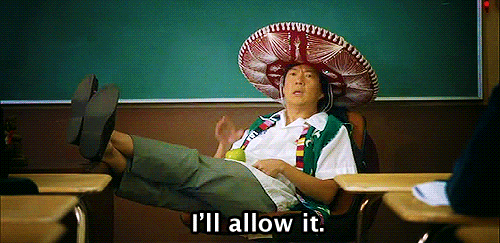Word of the Day
Relevant to the circumstances. Now, an opposite remark could be apposite if you posited it in the right place, but in general, it's best not to posit opposites—especially when talking about postulates—as apposites.
Gif of the Day

Tags CommunityKen JeongChangnesiaHatsAllowed thingsUseful gifs
Link of the Day
In Salomon’s study, student volunteers are asked to read texts that are heavy with common knowledge statements, such as “the Pacific Ocean is the largest ocean” and “Thomas Edison invented the light bulb,” but the texts were also populated with purposefully incorrect statements, such as “the Atlantic Ocean is the largest ocean” and “Ben Franklin invented the light bulb.” Similar to the Wästlund study, volunteers were then asked to take memory tests, in which they were quizzed about the facts mentioned in the text. About 20 to 30 percent of the time, volunteers answered the common knowledge questions about the largest ocean and the inventor of the light bulb incorrectly. Keep in mind these participants are students from one of the country’s top 20 universities.
Tags ReadingThe letter FAttentionRarely is the question asked: is our children learning?
